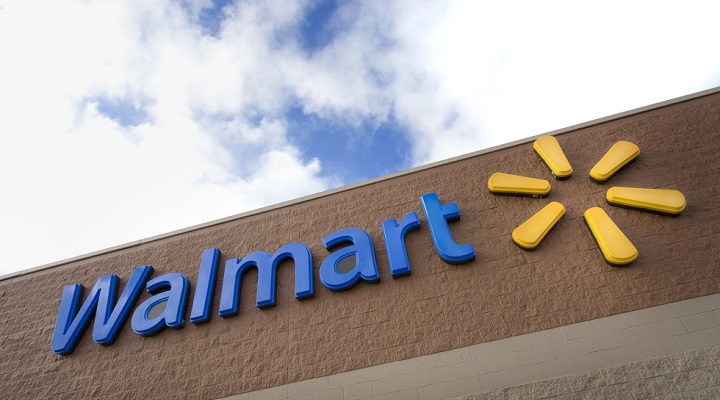The biggest retailer in the world, Walmart, has reportedly filed several trademark applications that suggest it plans to create its own cryptocurrency and collection of nonfungible tokens, or NFTs.
The filings, reported by CNBC earlier this week, have been described as Walmart’s first step into the metaverse, the idea that, in future, we will spend more of our everyday lives inside of virtual and augmented realities and will need more virtual goods, such as clothing, as a result.
It makes sense that bricks-and-mortar retailers would want to get on the front foot with NFTs; many are still playing catch-up when it comes to e-commerce. Until recently, many of the brands experimenting with NFTs have been in the luxury sector, such as Gucci, Burberry, Louis Vuitton and upscale wine brand Penfolds.
Increasingly, however, mainstream brands, such as Nike and Gap, are jumping on the bandwagon. And industry experts believe Walmart in particular will usher in a new era of mass cryptocurrency and NFT uptake.
A natural fit
“Walmart is one of the biggest companies on earth and the validation that Walmart provides carries value and [shows] that NFTs are here to stay and [that] people must innovate and get on board as opposed to it being used by only a small group of people as a hobby,” Pradeep Atmaram, marketing director at Kalamint, an NFT marketplace based on the Tezos blockchain, which has over 200,000 users and saw $3.5 million in sales in the last eight months, told Inside Retail.
According to Atmaram, the most common types of NFTs currently are collectibles, such as artworks, PFPs (profile pictures) and game assets. But given the broad flexibility of NFTs, it is simply a unique digital representation of an asset, he sees many possibilities for their use in retail.
“The great part about retail and NFTs is that it’s a natural fit. It’s not a forced relationship,” he said. “For example, on Kalamint, we saw the release of the first ever spirits (bottles of gin and vodka) sold as NFTs which were phygital.”
Gap took a similar approach with its recent launch of NFTs. According to a report in The Verge, the retailer partnered with artist Brandon Sines on a series of digital hoodie artworks, which customers can purchase with tez, Tezos’ cryptocurrency.
Some of the pieces start at around US$8.30, or 2 tez, but if customers want an actual hoodie along with their digital artwork, they’ll need to spend 100 tez, or roughly US$415, on top of purchasing several pieces of digital art first.
“Clothing seems to be a low-hanging fruit, especially to debut [in] the metaverse as well as stand-alone NFTs,” Atmaram said.
Still early days
Walmart is also looking to create its own cryptocurrency, according to its recent trademark filings.
While cryptocurrencies have been around for a while, they still aren’t widely used in everyday transactions. But that could soon change, with a recent survey by Visa finding that one in four small businesses plan to accept cryptocurrency payments in 2022.
“Over the last 12 months, the crypto asset industry has experienced breakthroughs in adoption, innovation and investment. Not only have we seen multiple financial institutions and corporations gain exposure to the asset class, but we have also seen household brands integrate crypto-related products into their existing businesses,” Jonathan Miller, managing director of cryptocurrency exchange Kraken Australia, told Inside Retail.
“For instance, Mastercard, Tesla, Visa, Rakuten, PayPal, Venmo and others announced support for crypto in 2021.”
If Walmart does launch its own cryptocurrency, it will trigger conversations and research by other businesses, he said.
“While it is an exciting technology for many businesses [and] industries and offers a lot of scope for retailers to leverage the technology in ways we can’t even imagine possible right now, it is still very early days for the space,” he said.
“Greater clarity for businesses [and] consumers through the development of regulation, as well as addressing sustainability concerns, will be key to seeing crypto become a bigger part of day-to-day life and fully integrated into industries like retail.”






